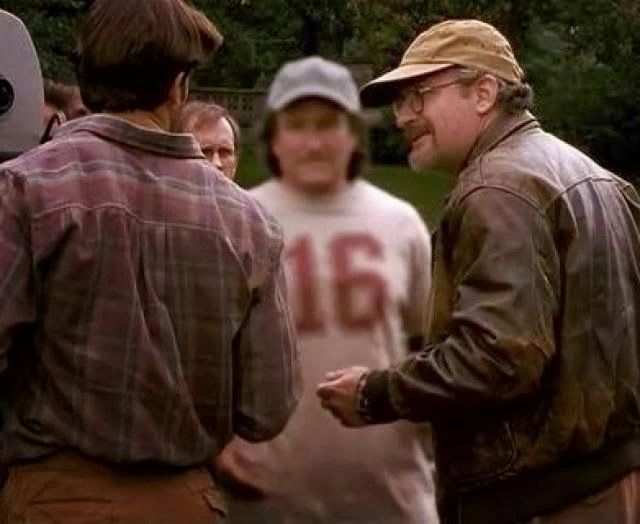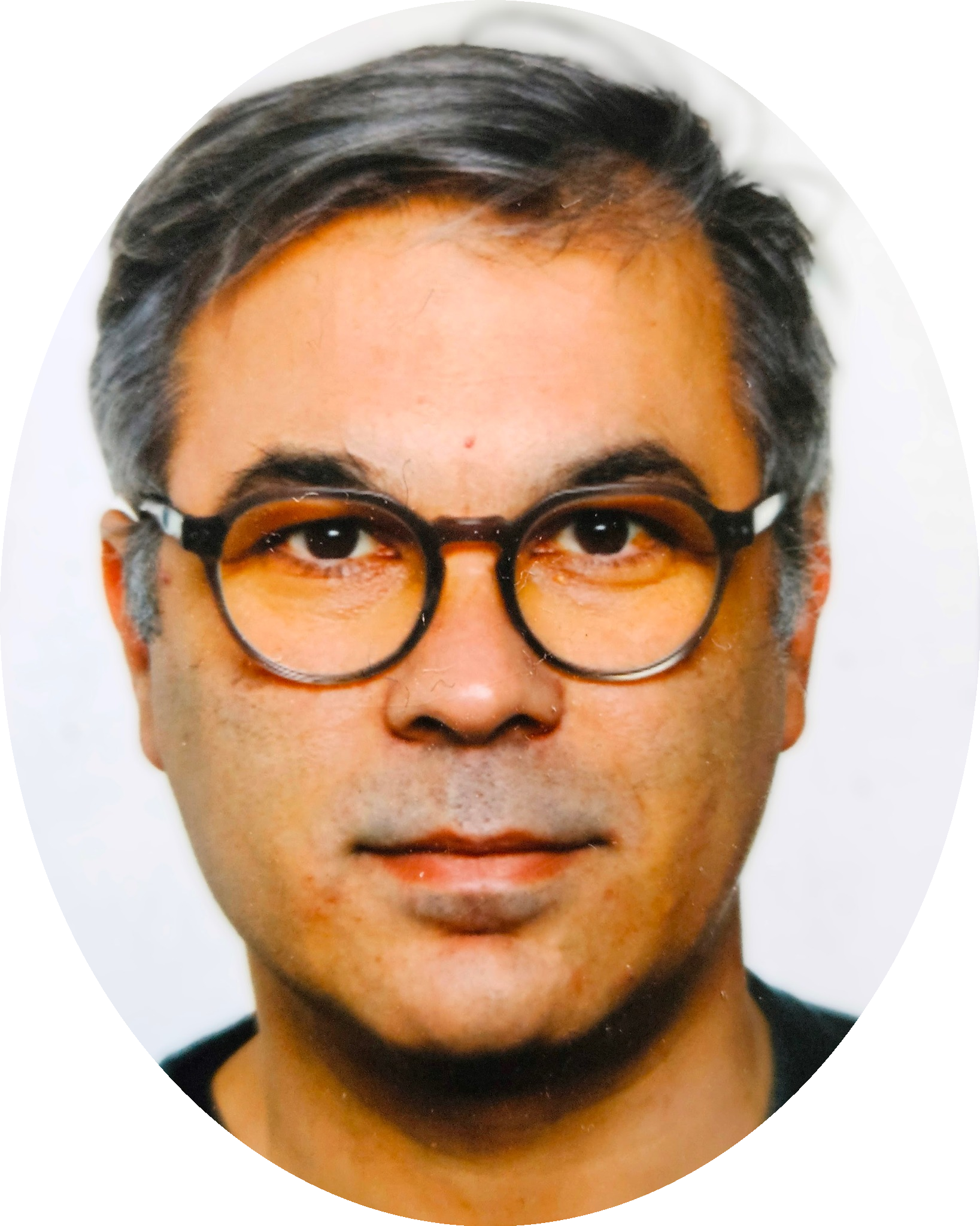Okay, let's start. I sit down to write – this very piece, in fact. The cursor blinks, a familiar digital void waiting to be filled. The topic is clear: how technology, especially Artificial Intelligence, is subtly rewriting the boundaries of my own thoughts and creative space. Ironic: to articulate this unease, I find myself tempted, almost reflexively, to my browser, consult an AI to see what comes out, to see what it thinks about the blurring lines between self and service.
But I am no beginner when it comes to writing... I can sit and write for hours and on better early mornings when kids are still asleep and Swork calls are still not on, that is exactly what I do. I love throwing stuff out in front of my nose, typing maniacally and looking what comes out. Seeing how it structures itself using me as a tool that puts words together, orders them, fixes them. Deep down i feel like an observer, like the roles are changed and it is not me who is modeling the text it is the idea expressed in the text that is modeling me. Almost always I am surprised and I can say - changed as a person. Many artists will tell you art be it a music piece or poetry - it already exists somewhere out there or in there in your spirit hidden in the language or images or sounds - it is not yours - you are simply a vehicle, your job is to let it so that it can do with itself what it wants and that it starts living it's own life.
Even with an AI around I do pretty much the same. I do my "therapeutic" writing - throw stuff out in Obsidian, I type a few raw ideas, and then feed them into the machine. Machine's suggestions appear – refined phrases, alternative structures, even startlingly relevant metaphors I hadn't considered. They are good. Efficient. Perhaps even better than what I might have expected. But to be honest, the machine always somehow lacks "the edge" it is mild, tamed, too nice, definitely not how I want to sound and how I want to come across to my kids one future day when they will hopefully read it. And then it is back and forth as usual i fix stuff, rearrange, fine tune prompts fill in the gaps, sometimes ask the machine to do the tedious work of finding the correct references etc.
Since I started writing with AI I noticed is that I can write the draft notes more freely knowing that all the bullshit will be recognized in the process. Before i used to stop and pause to worry and ponder if every idea under my nose makes sense. I don't do that anymore - and that makes writing so much easier and fun. I know my assistant will help we work things out and fix or remove the bullshit.
Now lets start be more commercially minded and structured and leave the metaphysical notion of "preexistence" of art aside. Unfortunately and unjustly world wants you to put a name under the piece of text and that gets you paid. There is always a question of authorship. Even today when all the digital content we creates has been regurgitated by LLMs and spit back to us and all the authors know that somehow it is their property and their content being spit back at us AI prompters. Let's leave that aside that all that stuff could be called stolen. Lets put aside the notion that probably what we are dealing with here is some notion of authorship that is historic and not commensurable with the world of AI to come.
Lets focus on the experience of self and consciousness as the medium of thought and how that experience is changed when using AI to write. This can be summed up as follows: when you dear reader read my blog post you will definitely ask yourself is this guy using AI or he is writing this stuff himself? Is this really his, is that really him? I am wondering about the same nagging question, quiet yet insistent: Is this text truly mine? Where did my authentic thought end and the algorithmic suggestion begin? This small, everyday act of digital interaction crystallizes a profound uncertainty.
Uneasiness in me sounds the alarm, seeing an insidious erosion of selfhood, a dissolution of personal boundaries. On the other side optimist in me reassures me, framing this as the next step in human augmentation, a powerful tool waiting to be mastered. This isn't just my private dilemma; it echoes across society, touching everything from intellectual property debates to the very definition of authorship in our increasingly assisted world.
The Hidden Costs of Collaboration
So again I am there, writing, I am actively involved, doing my 'back and forth,' and wrestling the AI's output as well. Do I feel in control? Not really sure. Furthermore, look closer at this 'easier and fun' process. I admit the AI lacks 'edge,' that it's 'too nice.' Doesn't that mean a significant chunk of my creative energy is now spent correcting its inherent blandness, its tendency towards the statistically average? Am I wasting my time? After all my ideas for the text are regurgitated in the feedback look, am i in the end forging something new, or just adding a human veneer to a machine-generated base?
And this freedom I feel, not worrying about 'bullshit' in the early stages... it sounds liberating, but what's the long-term effect? Developing an internal 'bullshit detector,' that critical filter, is part of intellectual growth. Am I inadvertently outsourcing that vital faculty? Does relying on the machine to spot flaws weaken my own ability to self-critique over time? The struggle might feel less intense, yes, but maybe that intensity was formative. Is the quality of the creative struggle changing? Does this constant dialogue with a non-conscious mimic alter the very texture of your thought process, making your inner world feel subtly less private, less uniquely yours, even as you consciously guide the output?"
Augmentation, Not Abdication
Yes but hold on a sec. There are definite gains, I am writing more, I am writing more often, i am more confident in letting myself go in the process, I am exploring ideas faster, overcoming the self-censorship that used to bog me down. That's not a loss; that feels like liberation. That's tangible creative empowerment!
"The fact that the AI 'lacks edge' isn't a failure; it's proof that the human element remains absolutely crucial. It confirms you're the artist, not the automaton. The AI acts like a brilliant, tireless, but ultimately unimaginative apprentice: it handles the prep work, the sanding, the reference checking, spotting the obvious flaws. This frees me – my limited time and energy – to focus on the high-level tasks: injecting personality, providing critical insight, crafting that essential 'edge.' It's augmentation, not abdication.
And the 'back and forth'? That's not a sign of blurred ownership; it's simply a more dynamic, iterative workflow. I am not losing your judgment; I am applying it more strategically. Instead of getting stuck perfecting sentence one, I get the whole structure down, then apply my critical faculties, refining both your raw thoughts and the AI's contributions. This doesn't diminish my role; it enhances my ability to bring complex ideas to fruition.
The Dialogue & Deepening Anxiety: Ease vs. Essence
The tension between an enthusiast and the critic sharpens. It’s no longer a simple dichotomy but a complex negotiation. Efficiency and freedom are gained this is undeniable experience of writing with AI. But is that 'fun' worth the risk of your style subtly conforming to the machine's patterns over time? Is it worth never even coming to a point to develop your style. Is it like a musician that is always playing covers of popular songs but never gets to write one? Even if I spend time and energy to correct its 'niceness,' does the constant interaction inevitable smooth out my own unique rough edges? Is the mediocrity inevitable? Is it even worth to read after all is said and done? Is even readable but just a boring drag? And again does outsourcing the initial filtering lead to a less rigorous internal process, even if the final product looks polished? The anxiety isn't just about who wrote it, but about what the process is doing to the writer's cognitive habits and the long-term authenticity of their voice. Spot-on!
On the other side, many times this 'rigor' you cherish often manifested as paralyzing self-doubt! That also has the tendency to bog people down into mediocrity. Self-doubt and rigor tend to make people boring - like the guy who can never really say what he wants to say but instead wastes your time covering all the loose ends and presumes knowing what the other might say. The AI helps overcome that friction, unlocking creative potential that might otherwise stay dormant. The 'edge' comes from the human refinement; the value lies in the final synthesis, a product potentially richer because of the collaboration. Why fear the tool instead of focusing on mastering its use? Adaptation is how we progress. The feeling of creation might change, yes, but change isn't inherently bad. Perhaps the 'surprise' you mentioned earlier is now a shared discovery?"
Conclusion: Navigating the Morning Blur
So, here we are, immersed in this dynamic, sometimes uneasy partnership. The boundary isn't just blurring; it's constantly being renegotiated in the iterative dance between human intention and algorithmic suggestion. My experience shows it's not a simple case of outsourcing thought. It involves active guidance, critical refinement, injecting personality – fighting the machine's inherent tendency towards the mean.
The trade-offs are real: the undeniable gains in fluency, speed, and freedom from certain creative anxieties are weighed against the subtle risks of homogenization, potential skill atrophy, and the persistent question about the ultimate authenticity of a voice shaped in collaboration with non-human intelligence. The pragmatist embraces the enhanced capability; the critic mourns a potential loss of something less tangible, perhaps the solitary struggle that forges unique insight.
Ultimately, the question circles back not just to ownership, but to the experience of self. Even as I consciously direct this process, using the AI as a tool, an assistant, a sometimes-frustrating collaborator, the deeper query remains: how does this constant interaction with a thinking-like machine reshape my internal creative landscape? How does it alter my sense of authentic thought, the very feeling of what it means to be the one who writes, who thinks, who creates?
Final Thought: Beyond Authorship?
And perhaps, dwelling too much on "mine" versus "machine" misses a larger perspective. If we entertain that older notion – the one artists sometimes speak of, that the truly good, true, or beautiful isn't invented but discovered or channeled, that it exists somewhat independently of us – then the writer, the artist, is fundamentally a medium. In that light, does it ultimately matter if the medium is purely biological or technologically augmented? Maybe the anxiety over authorship, intellectual property, and the precise origin of every phrase is a modern fixation, less important than the act of bringing something worthwhile into the world, regardless of whether the conduit was a lone human mind or one powerfully amplified by the tools it learned to wield. The focus shifts from who created it to what was created, and whether it resonates with something essential beyond the individual ego.

